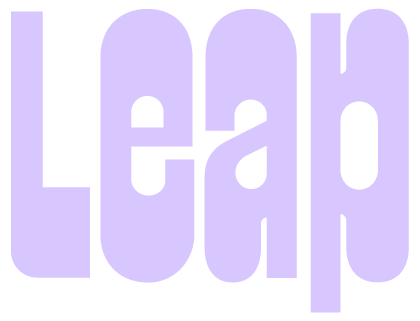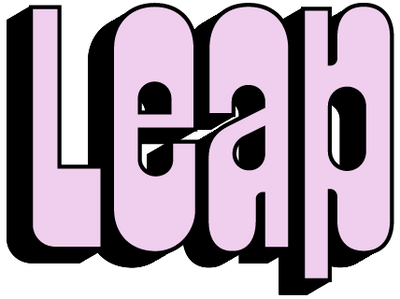By Zainab Mirza
The productivity space is dominated by men.
The problem with this? When offering productivity advice, men don’t take into account how differently menstruating people operate because of their monthly hormonal cycles. Since men’s bodies operate by a 24-hour hormonal cycle, this advice often falls short as it’s geared towards daily routines rather than systems we can apply that accommodate hormonal shifts across a menstrual cycle. And thanks to period shame and gender bias in medical research, there’s very little awareness of how we can use these shifts to our advantage, instead of suffering in silence.
Most people assume the menstrual cycle only consists of premenstrual syndrome (PMS) and a period. It is only in the past few years and with the availability of period tracking apps like Flo and Clue that there has been growing awareness of the menstrual cycle and its four phases—Menstruation, Follicular, Ovulatory, and Luteal. This is still not common knowledge though. When I learned about it at 29, it shook me and things started making sense: why I enjoyed being around people some days and wanted to be alone on others; why I’d sometimes feel I could take over the world and at other times feel completely insignificant; and most importantly, why I was often so exhausted even when getting enough sleep.
Resisting ‘toxic’ productivity
Because of hustle culture and pressures of the workplace, menstruating people often feel compelled to push themselves through menstruation at the risk of exhaustion (in a 2017 survey of 43,000 girls and women, 71% said they experienced tiredness or exhaustion during their periods).
There is even an increasing aversion to the word ‘productivity’, with how it’s interpreted as the need to be productive or on the go no matter what, coupled with the guilt associated with rest.
But what if there was a way to work with our bodies rather than against them? What if we could reclaim productivity and practice it mindfully, on our terms?
The menstrual cycle starts with Day 1 of your period and is on average 28 days long, but can differ. Its length determines the length of the four phases. Each phase is marked by shifts in energy, mood and motivation dictated by fluctuations in the hormones estrogen and progesterone. You may for instance put off doing certain activities during your period because of the toll it may take on your body. But did you know there are a plethora of tweaks you can make to your routine to better tap into your productivity throughout your cycle, all while listening to and functioning in tune to your body?
Enter Cycle Syncing: A revolutionary approach
Cycle syncing is the approach of syncing your movement, work commitments, and socializing activities according to what phase of your menstrual cycle you’re in and thrive while you’re at it.
Let’s take a look at what happens in the four phases, and the ideal activities to align with each to enhance productivity.
Note: These are just suggestions. It may not be possible for you to make all these changes depending on the nature of your work, or the commitments you or the people you work with may have or simply because the patterns themselves can change. Some of them may not even apply to your lifestyle. Start small and do what works for you.
Menstrual Phase (3-7 days long)
Or your period, when the uterine lining formed in the previous cycle is shed. Estrogen and progesterone are both low.
This phase is marked by low energy and waning motivation. It’s the perfect time to rest and reset, not resent your body for doing exactly what it’s supposed to! Journal to reflect upon how your month has passed, what you’d like to change, what areas in your life need attention, what no longer serves you that you may need to let go of. You may experience clarity; identify goals you want to work towards and create a plan for how you’re going to achieve them as you and your body prepare for a new cycle.
Take some time off to relax or reduce your workload, if possible. If not, go easy on yourself, stay in, meditate, get some more sleep (your body needs it!). You might want to avoid teamwork, long meetings, and social gatherings to preserve your energy.
In terms of movement, don’t feel compelled to push your body’s limits. Walks, yin yoga, and gentle stretches are the way to go. Towards the end of your period, you may feel like you want to try a more intense level of activity. Listen to your body.
Follicular Phase (7-10 days long)
Estrogen climbs as the ovary prepares to release an egg. The uterus rebuilds its lining.
Energy rises, as does your motivation. Time to unleash your creativity, experiment with ideas, have brainstorming sessions, develop strategies, tackle challenges, learn new things, and launch new projects.
You may feel more outgoing now, so it’s a great time to block your calendar for events and/or outings with friends. If you feel more open to new experiences, create opportunities to try something new! Make sure you go easy though—don’t commit to too much too soon to avoid getting overwhelmed.
Movement-wise, channel that rising energy into strength and resistance training, or anything that requires more intensity than usual.
Ovulatory Phase (3-4 days long)
The egg is released and awaits fertilization. Estrogen peaks.
Energy is now at its peak! Time for executing plans, collaborating, having tough conversations, negotiating, presenting, or facilitating workshops.
Your face also glows, you feel more attractive, you’re bursting with confidence. This is the ideal time for photoshoots and recording videos for social media (if that’s part of what you do). You’re likely to be your most social self and want to meet new people, attend events, or network.
You may enjoy high impact workouts, running, group classes like Zumba/other dance classes, spinning etc.
Luteal Phase (10-14 days long)
The body preps for a pregnancy. If the egg isn’t fertilized, the uterine lining will begin breaking down since it’s no longer needed. Progesterone rises as it’s produced, and then drops along with estrogen.
Energy starts decreasing. It’s time to slow down. Focus and concentration however, heighten. Ease into more solitary deep work, wrap up projects, review details, organize, declutter, complete tasks on your to-do list. As your social capacity reduces, take time out for yourself and be selective about who you spend time with.
The luteal phase is also characterized by mood swings or intense symptoms of PMS. As you start looking inward, you might feel more self-critical. Remember to be kind to yourself and practice self-care. Accept that this is merely a transition your body undergoes to fulfill an important function. Allow the emotions to flow through you—sit through them, don’t suppress them. This phase can also bring out physical, mental, emotional or other challenges and concerns that are being ignored and require your attention. Think of it as an opportunity for honesty, growth, and healing when addressing them.
You may be able to continue with more intense forms of movement in the first few days of this phase. As your energy starts falling, transition to less intense movement, like walking (especially in nature), yoga, pilates, or bike rides.
Taking it one step at a time
There’s more that happens physiologically in each phase. Depending on what you're going through, some days may feel more intense than others. Pay attention to what's happening in your life. All bodies are different and so changes may differ too. Check in with yourself and observe what you’re experiencing when it comes to your moods, motivation, and energy. This can be a lot to take in so you may not notice patterns immediately, and that’s okay. Take things slow and pace yourself. Ask yourself: What areas resonate with me most when considering work, movement, and socializing? What changes can I make to my schedule to better support myself?
We don’t have to ‘push through’ and tire ourselves out every cycle. By building more self-awareness and normalizing conversations around our menstrual cycles, we can empower ourselves and more menstruating people to better understand our bodies, work with them, and make lifestyle changes that are best for us.
Menstrual meets Mindful Productivity Challenge:
My friend Diahala and I are running a one-cycle challenge for people who menstruate, which is open until February 15, 2022. We’re tracking our moods, energy, and motivation while observing our workflow throughout our menstrual cycles, learning more about our bodies and ourselves in the process. Want to join us and tap into your own mindful productivity? Click here to sign up!

